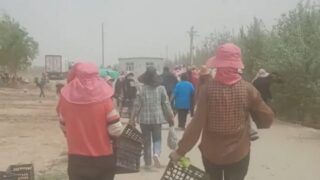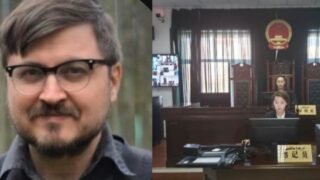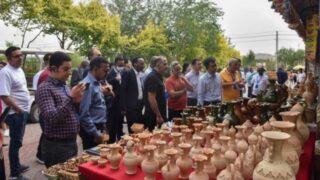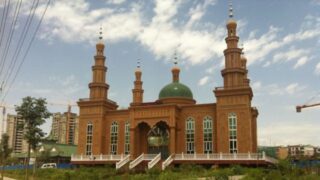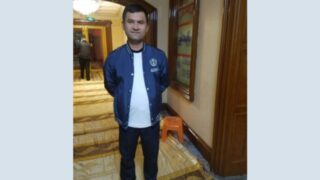Survivors believe this is a deliberate strategy to humiliate both female and male Muslims in Xinjiang.
by Ruth Ingram


Uyghurs are being exposed to a catalogue of psychological harm as they run the gauntlet of China’s crackdown in their homeland.
As international experts, journalists and activists gathered last week in the UK’s northern city of Newcastle, home of CCP-sanctioned Jo Smith Finlay, for a landmark conference to debate the so-called Genocide of the Uyghur people, the mental and spiritual trauma suffered by not only those at home but the tens of thousands stranded exiles overseas was high on the agenda.
Rahima Mahmut, director of the UK branch of the World Uyghur Congress who often translates and interprets for the diaspora, finds herself constantly traumatised by one testimony after the other of former detainees who are broken by their experiences in the camps. Both those who have been abused and those who had to watch or clear up afterwards are permanently scarred by their experiences, she recounted.


From her experiences listening to harrowing accounts, rape, she said, seems to be one of the primary weapons used by the CCP to not only hurt and break the women, but also to humiliate the men. Women in Uyghur culture, she explained, are the primary teachers of the young and the carriers of culture. “This is a deliberate attempt by the government to destroy women who give birth, educate their children, and pass on the culture, language and history,” she said.
Asked whether evidence of systematic rape in the camps was sound, Mahmut described the anguish of Gulzira Auelkhan, a Kazakh woman who had worked in a camp after she was called in, as a woman, to translate. Only after she had reached the safety of the “free” West had she felt able to speak frankly about her ordeal. Through witnessing the spontaneous, convulsive gasps and tears, as her story came tumbling out, Mahmut became convinced of its authenticity.
Auelkhan’s job as a Kazakh in the camp had been to undress girls chosen for their youth and beauty and prepare them for Han men who had paid for their services. She had to tie them down, and clean up afterwards. “She sobbed uncontrollably as she told her story,” said Mahmut. “She will suffer long term psychological damage, as will all the women in exile who have close contact with survivors.” Mahmut described the widespread trauma of her community which she explained was breaking the spirit of her people. “There are so many emotionally destroyed women in our community,” she said. “The pain is too difficult to bear.”
Many diaspora women have been torn from their children. Unable to obtain passports for some of them, for the sake of the others, they were forced to abandon the rest, often with relatives or friends. “Some have lost three or four children,” she recounted. “This is an intolerable pain they live with every day.”
The need for psychological support was critical, she said. “Many have severe mental health conditions. They are depressed and anxious and this is something that will never go away.”
Fearing that this is a CCP tactic to destroy women’s strengths and intellects, Mahmut feels it is important not to give in. She described another camp survivor, Tursunay Ziawudun, who had been systematically raped over her nine month internment and had concluded the purpose was “designed to destroy everyone’s spirit.”
“But we must carry our culture using whatever talents God has given us, whether it is music or poetry, or other gifts,” said Mahmut defiantly. “These accounts push us to continue our spirit found in our music, our history and our stories.”
“It’s my duty to carry on this spirit,” she said, “and to make sure it is carried on in the future. We will continue to survive.”
“I try not to allow the CCP to win,” said Mahmut.


